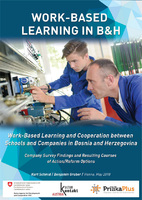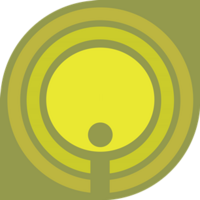Über Österreichs Grenzen hinaus: Wir beraten. Wir gestalten mit.
Unsere Schwerpunkte:
- SkillsAustria – EuroSkills – WorldSkills: www.skillsaustria.at
- Know-how-Transfer
- ReferNet
- EU-Projekte
Über Österreichs Grenzen hinaus: Wir beraten. Wir gestalten mit.
Unsere Schwerpunkte:

Company Survey Findings and Resulting Courses of Action/Reform Options
For WBL to be a backbone of IVET, companies must participate in it, ie train young people/students. Therefore it is of central interest why some companies train – yet, a lot of them not. An online company-survey was conducted to shed light to the training decisions of enterprises. In combination with results from various round-table discussion with policy stakeholders, companies and VET-schools, policy recommendations to foster WBL have been derived.

Im Rahmen des Projektes „BOQua“ wurde ein europäisches Qualifizierungskonzept für die „Fachkraft Berufsorientierung“ entwickelt. Dazu wurden länderspezifische Analysen zu Good-Practice Beispielen von erfolgreichen Berufsorientierungsmaßnahmen und -aktivitäten sowie Fallstudien bei Beschäftigten in der Berufsorientierung und -beratung erstellt. An diesem Projekt nahmen fünf Einrichtungen aus Deutschland, Österreich (ibw), Großbritannien, Spanien und Slowenien teil. Die Koordination oblag der Pädagogischen Hochschule Schwäbisch Gmünd (Deutschland).
Dieses Projekt wurde mit Unterstützung der Europäischen Kommission finanziert.
Die Verantwortung für den Inhalt dieser Veröffentlichung trägt allein der Verfasser;
die Kommission haftet nicht für die weitere Verwendung der darin enthaltenen Angaben.
As part of the BOQua project a European qualification concept called “specialist for vocational orientation” was developed. The qualification concept built on a country-specific analysis of examples of good practice in the implementation of successful career guidance measures/activities as well as case studies of relevant career guidance and counselling staff. Five institutions from Germany, Austria (ibw), Great Britain, Spain and Slovenia participated in this project. The project was headed by the Pädagogische Hochschule Schwäbisch Gmünd (Germany).
The European Commission support for the production of this publication does not constitute an
endorsement of the contents which reflects the views only of the authors, and the Commission
cannot be held responsible for any use which may be made of the information contained therein.
Kontakt/Contact: Helmut Dornmayr
Projektzeitraum/Project duration: 2016 - 2018

Das im Programm Erasmus+ gefördert Projekt ECVAET III war die Erweiterung der Ergebnisse aus ECVAET I und ECVAET II und zielte auf die berufliche Weiterbildung in der Veranstaltungstechnik (VAT) ab. Der Bedarf an Fachkräften mit einer Qualifikation, die dem Level der Meisterqualifikation entspricht, wächst in der Branche stetig an. In diesem Projekt wurde ausgelotet, welche Kenntnisse, Fertigkeiten und Kompetenzen Personen, die die Aufgaben eines „Meisters“ in der VAT übernehmen, in den am Projekt teilnehmenden Ländern (DE, LI, CH und AT) mitbringen sollten. Diese Fähigkeiten wurden in einer Kompetenzmatrix dargestellt, die Gemeinsamkeiten und Unterschiede ersichtlich machte. Um bilaterale Unterschiede hinsichtlich der Anforderungen nachholen bzw. angleichen zu können, wurden Weiterbildungsmaßnahmen entwickelt.
Dieses Projekt wurde mit Unterstützung der Europäischen Kommission sowie des Bundes-
ministeriums für Bildung finanziert. Die Verantwortung für den Inhalt dieser
Veröffentlichung trägt allein der Verfasser; die Kommission haftet nicht für die
weitere Verwendung der darin enthaltenen Angaben.
The ECVAET III project, which is funded within the framework of the Erasmus+ programme, was the extension of results obtained in the course of ECVAET I and ECVAET II and focused on the continuing vocational education and training (CVET) in event technology. The demand for skilled workers with a qualification level that corresponds to the master craftsperson qualification is increasing steadily in this sector. This project aimed to explore the knowledge, skills and competence required by those who take on the tasks of a “master craftsperson” in event technology in the countries participating in the project (DE, LI, CH and AT). These skills were presented in a competence matrix which made the similarities and differences clear. CVET measures were developed to be able to make up for and adapt any bilateral differences regarding requirements.
The European Commission support for the production of this publication does not
constitute an endorsement of the contents which reflects the views only of the authors,
and the Commission cannot be held responsible for any use which may be made of the
information contained therein. The project was Co-funded by the Federal Ministry of Education.
Kontakt/Contact: info@ibw.at
Projektlaufzeit/Project duration: 2015 - 2017

Das ibw koordiniert auf Basis eines vierjährigen Rahmenvertrages zwischen 2016 und 2019 das ReferNet Austria, das Teil des gesamteuropäischen Referenznetzwerks von Cedefop ist. ReferNet hat die Aufgabe, Cedefop über bildungspolitische Entwicklungen im Bereich der Berufsbildung zu informieren und die nationalen Berufsbildungssysteme zu beschreiben.
On the basis of a four-year framework contract, ibw acts as the coordinator of ReferNet Austria, which is part of the pan-European ReferNet (network of reference and expertise in VET), between 2016 and 2019. The tasks of ReferNet in Austria are to inform Cedefop, the European Centre for the Development of Vocational Training, about recent developments in educational policy in the VET sector.
Kontakt/Contact: Wolfgang Bliem
Projektzeitraum/Project duration: 2016 - 2019

Ziel des Erasmus+ Projektes VET4E war es, die Durchführung von Betriebspraktika in der Berufsausbildung in Lettland zu fördern. Auf nationaler Ebene wurden Instrumente entwickelt mit deren Hilfe die Sozialpartner Kooperationen zwischen Arbeitgebern und Bildungsinstitutionen unterstützen können. Dabei wurde unter anderem auf Erfahrungen von Ländern mit einem dualen Berufsausbildungssystem zurückgegriffen. Als Projektpartner organisierte das ibw im Februar 2015 einen Studienaufenthalt für die lettischen Projektpartner. Ziel des Aufenthaltes war es, Erfolgsfaktoren des österreichischen Lehrlingsausbildungssystems kennenzulernen und den möglichen Transfer von Elementen und Praktiken zu diskutieren.
Dieses Projekt wurde mit Unterstützung der Europäischen Kommission finanziert.
Die Verantwortung für den Inhalt dieser Veröffentlichung trägt allein der Verfasser;
die Kommission haftet nicht für die weitere Verwendung der darin enthaltenen Angaben.
The aim of the Erasmus+ project VET4E was to promote work based learning and traineeship in the Latvian VET system. On a national level tools were developed which allow social partners to support cooperation’s between employers and VET institutions. Among other things this were build on experiences from countries with dual VET traditions. As a project partner ibw organized a Study Visit for the Latvian project partners in February 2015. Aim of the visit was to learn about success factors of Austrian VET system and discuss transferable elements and practices.
The European Commission support for the production of this publication does not constitute an
endorsement of the contents which reflects the views only of the authors, and the Commission
cannot be held responsible for any use which may be made of the information contained therein.
Kontakt/Contact: Anna Schönherr
Projektzeitraum/Project duration: 2014 - 2017

Main goal of the Erasmus+ funded project “VET: Support for Apprenticeship Take-up: Austria-Hungary-Switzerland” was to foster apprenticeship training in Hungary.
Core of the project was the development of a prototype of a cost-benefit calculator for companies engaging in apprenticeship training.
Ibw provided expertise in conducting a background analysis of the current Hungarian IVET system as well as actively supporting the development of the CBA-calculator.
Project partners: WKO / WIFI, bfi Oberösterreich, Hungarian Chamber of Commerce and Industry, Hungarian Chamber of Agriculture.
The European Commission support for the production of this publication does not constitute an
endorsement of the contents which reflects the views only of the authors, and the Commission
cannot be held responsible for any use which may be made of the information contained therein.
Kontakt/Contact: Kurt Schmid
Projektzeitraum/Project duration: 2016

Im Projekt QYCGuidance wurden Materialien und Tools entwickelt, die Bildungs- und Berufsberater/innen dabei helfen, die eigene Medienkompetenz in Zusammenhang mit der Nutzung moderner Medien zur Bildungs- und Berufsberatung, zu evaluieren. Diese Tools sollen auch Ratsuchende (insbesondere Jugendliche) bei der Entwicklung von Kompetenzen zur Selbstinformation unterstützen. Konkret wurden Qualitätsindikatoren für Medienkompetenz in der Bildungs- und Berufsberatung, ein Online „Self-Assessment-Toolkit“ sowie ein Leitfaden für Berater/innen erstellt. Das Projekt wurde im Programm Erasmus+ durchgeführt und vom Bulgarischen Partner Student Computer Art Society (SCAS) koordiniert. Weiters waren Einrichtungen aus Österreich (ibw), Bulgarien, der Türkei und Litauen am Projekt beteiligt. Das ibw war im Rahmen des Projektes insbesondere für die Entwicklung eines Leitfadens verantwortlich, der Berufs- und Bildungsberater/innen darüber informiert, wie Jugendliche bestmöglich in der Nutzung moderner Medien zur Selbstinformation unterstützt werden können.
![]()
Dieses Projekt wurde mit Unterstützung der Europäischen Kommission finanziert.
Die Verantwortung für den Inhalt dieser Veröffentlichung trägt allein der Verfasser;
die Kommission haftet nicht für die weitere Verwendung der darin enthaltenen Angaben.
The QYCGuidance project aimed to develop materials and tools that help educational counsellors and career guidance officers develop and evaluate their own media competence relating to the use of modern media for educational counselling and career guidance. They also help them support people seeking guidance (especially youths) in developing competences so they can gather information themselves. It aimed to produce concrete results in the form of quality indicators for media competence in educational counselling and career guidance, an online self-assessment toolkit for guidance officers, and a guide for guidance officers. The project was implemented as part of the Erasmus+ programme and coordinated by the Bulgarian partner Student Computer Art Society (SCAS). Additonally other partners from Austria (ibw) Bulgaria, Turkey and Lithuania were involved in the project too. In this project, ibw was responsible especially for developing a guide that informs guidance officers how young people can be best supported in the use of modern media to gather information themselves.
![]()
The European Commission support for the production of this publication does not constitute an
endorsement of the contents which reflects the views only of the authors, and the Commission
cannot be held responsible for any use which may be made of the information contained therein.
Kontakt/Contact: Wolfgang Bliem
Projektzeitraum/Project duration: 2014 - 2016

In diesem Projekt wurden technische Qualifikationen der höheren beruflichen Bildung, die auf umweltbezogene Berufe vorbereiten, verglichen und transparent gemacht. Dabei wurden unter Einbezug des ECVET-Gedankens gemeinsame, länderübergreifende Lernergebnisse formuliert und ECVET-Punkte zugeordnet. Auf diesem Weg wurde zwischen den Partnerländern mehr Transparenz hinsichtlich Qualifikationen geschaffen sowie die Mobilität von Lernenden und Arbeitenden unterstützt. Das Projektkonsortium bestand aus Einrichtungen aus Italien, Slowenien, Spanien, Rumänien, Griechenland und Österreich.
This project aimed to compare higher technical VET programmes which prepare for environment-related occupations. and made them transparent. Thereby joint learning outcomes for the countries involved were formulated by taking the ECVET philosophy into account and assigning ECVET credits to the programmes. In this way, between the partner countries transparancy of the qualifications was created as well as mobility of learners and the workforce was supported. The consortium comprised institutions from Italy, Slovenia, Spain, Romania, Greece and Austria.
Kontakt/Contact: info@ibw.at
Projektdauer/Project duration: 2013 - 2015